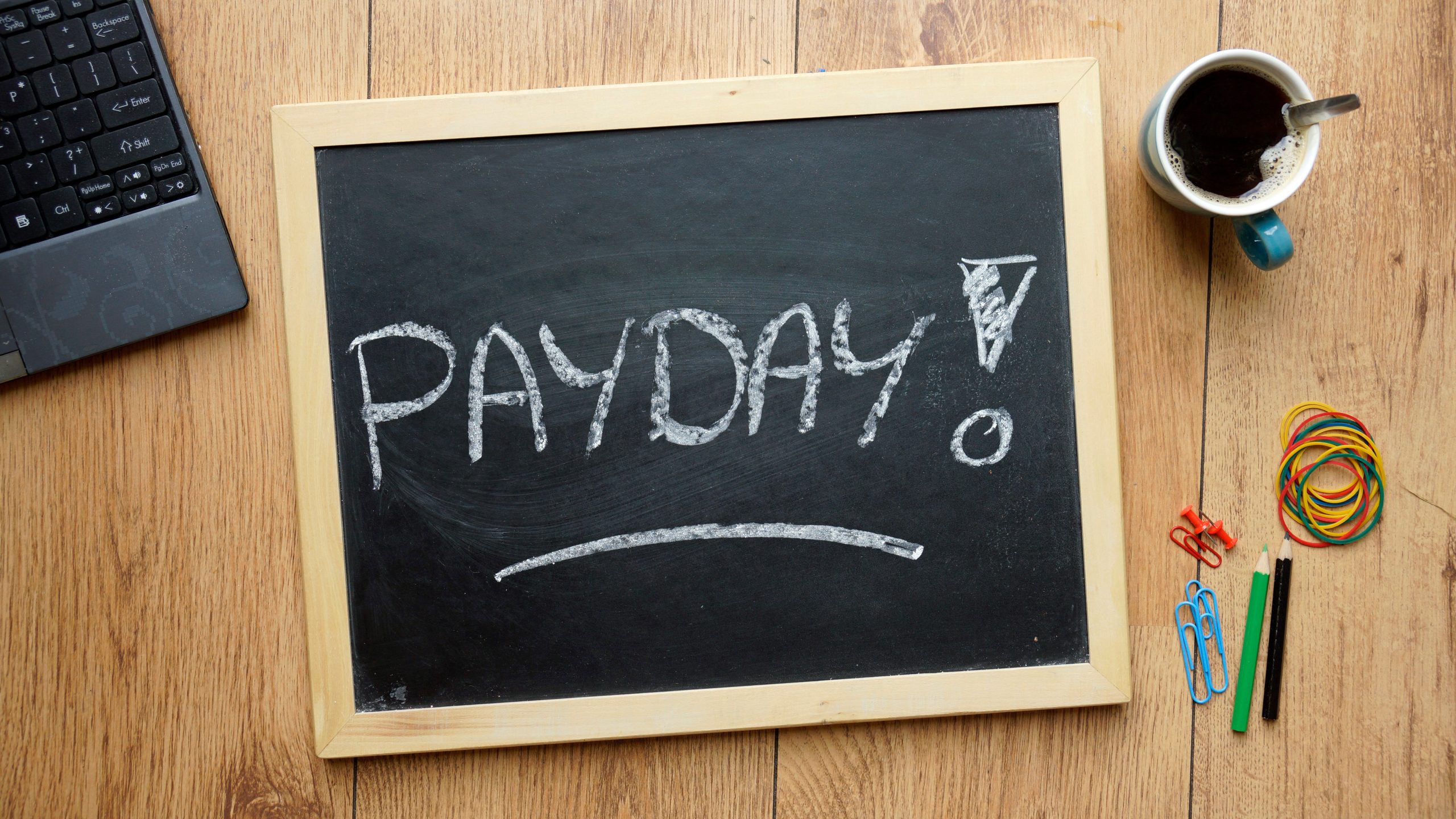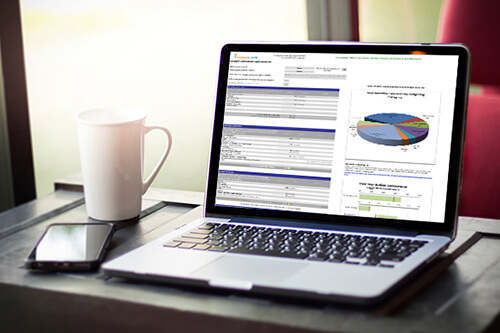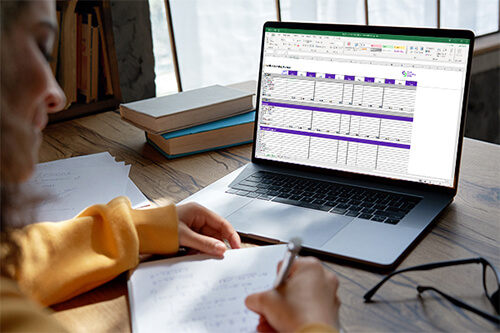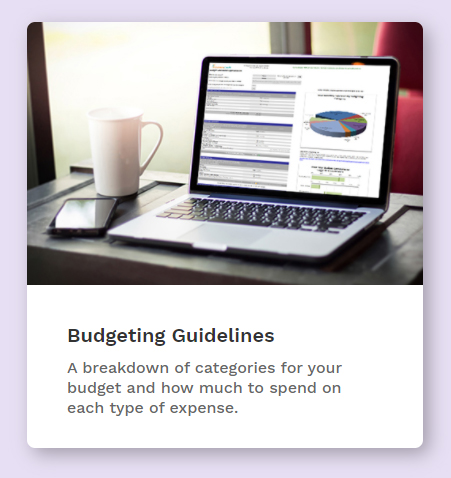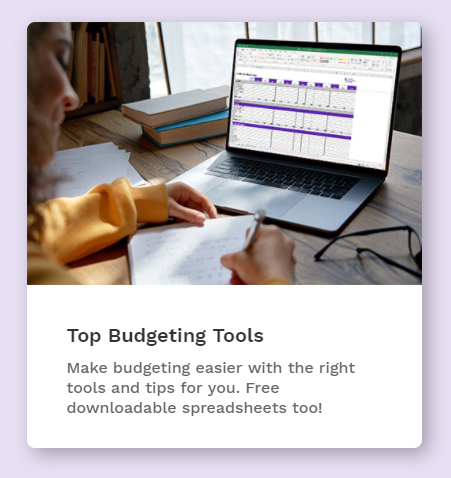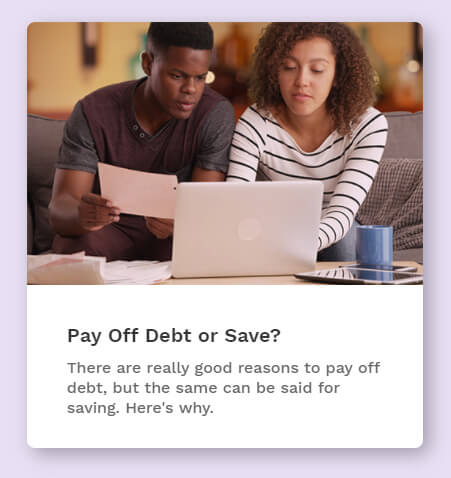Will Getting Paid Every Day Solve Your Money Problems?
Earned Wage Access (EWA) Has Less Pros Than Cons
By Julie Jaggernath
Earned Wage Access (EWA) is a benefit some employers offer and actively promote in their recruitment campaigns. If you’re thinking about taking on a job – or second job – to help make ends meet, you might be tempted to enroll in an EWA program to get paid more quickly with instant pay. But will getting a pay cheque on demand every day solve your money problems? Spoiler alert: it almost never does, and it can make it harder to manage your money.
To manage through these challenging financial times and balance the impact on grocery spending with higher housing and utility costs, it’s crucial to focus on what you can do rather than on what’s out of reach. Here are 7 tips you can implement right away:
What is Earned Wage Access (EWA)?
Earned Wage Access (EWA) is what companies do when they offer employees the ability to get paid every day by accessing the money they earned right away. This type of instant pay scheme can also be referred to as early wage access, on demand pay, accrued wage access, or instant pay.
There are EWA payment companies that provide the program to employers. Employers allow their employees to sign up and the money is usually accessed through a specific app. People who are self-employed or who work in the gig or freelance economy might already get some of their pay on every day that they work. But in the service and labour industries as well as with traditional employers it is not normally done.
‘Accessing Your Earned Wages’ versus ‘Earning Income Daily’
If you want to access your earned wages without an EWA program, there are generally two ways to do that. Option one is to ask your employer for an advance on your pay cheque. Some companies are willing to do that while many are not due to the extra work it puts on their payroll staff. Option two is to get a (costly) payday loan and borrow against the pay cheque you will receive in about two weeks.
Earning income daily is different. It means waiting for the money you earned, while working your scheduled hours, to be paid to you on your next pay cheque, i.e. bi-weekly or semi-monthly.
Why a Payday Loan Can Make Money Problems Worse
Are There Costs for EWA Programs?
EWA programs facilitate the payment of your daily wages through apps, which are marketed to employers and employees as a way to give someone more control over their personal finances. We’ll get to that second part below – about control of your money – because it’s a big deal and might not work out for you at all.
When it comes to EWA and daily pay service providers, the charges vary. With some programs, the employer pays most of the costs. This could, however, mean that an employer spends less on other benefits, e.g. extended health, dental, vision, travel, or lifestyle programs, which are traditionally very desirable. If you’re an employer considering EWA options as a benefit, there are other resources to help employees in financial difficulty.
With other EWA service providers there are costs for the employees to pay. They could seem small when considered as one-offs, but they add up quickly if you access your income seven days a week.
Helping Employees with Money – What’s In It for an Employer?
How Does Getting Your Money Via an App Actually Work?
Most Canadians now get their income through direct deposit. However, with EWA, the money you earn each day is not automatically deposited to your existing bank account. It is usually enabled for access through an app for your smartphone and/or a specific reloadable debit card. You must then transfer the money to your own bank account, or use the card that has been provided to you, to do your spending. On top of these extra steps, there could also be fees involved with any transactions you make.
Another consideration is that your spending habits won’t remain private between you and your financial institution. A third party, potentially located (or with their servers) in another country, has access as well. While this doesn’t automatically mean that your employer receives this information, electronic agreements could put your personal information in the hands of entities that you’re not aware of. Be sure to read any service agreements for an EWA program so that you know what you’re signing up for.
The Pros and Cons of Budgeting Apps in Canada
Getting Paid Every Day Sounds Like a Great Idea
Getting paid every day might sound like a great way to always have money available for what you need to buy. EWA programs might cost less than payday loans or high interest online lenders. If you work for a company that has trouble paying their employees on time, taking your wages as you earn them means you’ve got less at risk than waiting two weeks.
If you don’t have good access to low interest credit and aren’t good at saving, getting money every day might seem like it will fix all your problems. But don’t get too excited – the drawbacks are significant and can’t be overlooked.
An Alternative Way to Budget and Track Your Money
How Could Getting Paid Every Day With EWA Be a Bad Idea?
The key drawback is that daily earned wage access makes it hard to manage your money. If you already struggle to live according to a budget and match your spending to your pay cheques, EWA will make it harder. You will find it difficult to keep on top of your bills and debt payments. Saving towards larger and unexpected expenses can be nearly impossible because you’ll be spending what you earn as quickly as it comes in.
It’s hard to get ahead when you’re living from one day to the next with your money. It can even be worse than living paycheque to paycheque. There’s no way to get a pay cheque cycle or two ahead if you spend what you earn every day. If you want to set money aside in an emergency fund and create a safety net for yourself, planning how to spend your money and getting at least a month ahead is essential.
Consider this:
Budgeting and Pay Cheque Planning
If you’re tempted to take advantage of a daily pay schedule, think about your current financial obligations. Rent, utilities, and a line of credit are due monthly not daily. Credit cards could be paid every time you use them, but that defeats the reason why many people use their credit cards. Car loans are often paid bi-weekly or monthly according to a more traditional income pattern.
For practical reasons, most people have aligned their regular bills and expenses with when they get their income into their bank account. This also makes it easier to plan how to manage variable expenses like groceries or gas. It’s normal to think about how much money you’ll have after pay day so that you can buy groceries and afford to fill your gas tank. Daily pay sounds like an easier way to pay your living expenses, however, it will create additional stress as you attempt to ensure you’ve got money set aside for when it’s needed.
Dealing with Reduced Income
When you receive income every day, you start to plan and count on that income continuing in an uninterrupted manner. However, when you are unable to work every day, e.g. due to injury, illness, a family matter, or face reduced hours, your ability to keep on track with your money is jeopardized. Coming up with an alternate plan is also quite challenging when your budget depends on receiving daily pay.
When you are paid on a less frequent schedule, i.e. bi-weekly or twice a monthly, a pool of money comes available to pay first for what is needed and wanted. For instance, if you need to take a day off because of a childcare matter, then your dinner out can be cancelled in lieu of covering the rent payment. When you draw your wage every day, there is no pool of money unless you create one for yourself, which leads to the most significant drawback of EWA – the inability to plan ahead financially.
13 Hidden Ways to Save on Groceries
Planning Ahead and Saving Towards Your Goals
Setting a little money aside every two weeks with an automated payment is by far the most effective way to save. It leaves you with enough money in your chequing account to find some happiness and those small transfers to your savings account will grow. It feels almost painless and suddenly you’ve got this chunk of cash. However, saving is nearly impossible when you take your pay on a daily basis because there is never enough left over to save, let alone pay yourself first.
Being paid daily makes saving totally unrealistic. You won’t receive larger sums of money. Setting up automated savings transfers will be difficult because your actual days and hours worked may vary. Without any savings, it’s easy to fall victim to circumstances beyond your control. Your cashflow disappears because you need the money to pay bills, which can lead to relying on credit to make ends meet.
12 of the Most Effective Ways to Get Out of Debt
How to Manage EWA or Getting Paid Daily
In addition to a formal EWA program, there are situations where someone might get paid daily, or several times a week. These include, for instance, those who freelance, work two or three jobs, are self-employed, or who work seasonally. In all of these cases it’s important to treat your income as irregular and follow money management strategies that help you deal with irregular income.
One of the best strategies to manage fluctuating income is the holding account method. Everything you earn and any extra money you receive (e.g. government benefits, income tax refund, or alimony) is deposited into a bank account that is separate from your regular chequing account. Then based on your budget and a set schedule, you transfer a predetermined sum from your holding account to your chequing account.
From your chequing account you then operate as you normally would, paying your bills and spending on what you need and want. Savings can be set aside either directly from the holding account, or as an expense from your chequing account, as long as it is still set aside regularly.
How to Survive an Economic Downturn
Savings, Not Daily or Instant Pay Solves Money Problems
Earned wage access (EWA) and being paid every day might sound like the magic solution for improving your finances and lifestyle. In reality, just the opposite could happen, and it would be worse than living pay cheque to pay cheque! Taking your pay between traditional pay cycles could make it harder to make ends meet, and no one should have to pay a fee to access their pay cheque. Even if the fee is low, like $3 per transaction, that cost adds up to $30 or more over a traditional pay period. If you think that’s no big deal, take that $3 a day and save it instead. You would have over $1,000 in a year! Savings, not daily pay, is what leads to long-term financial stability and wellbeing.
Last Updated on June 11, 2024
